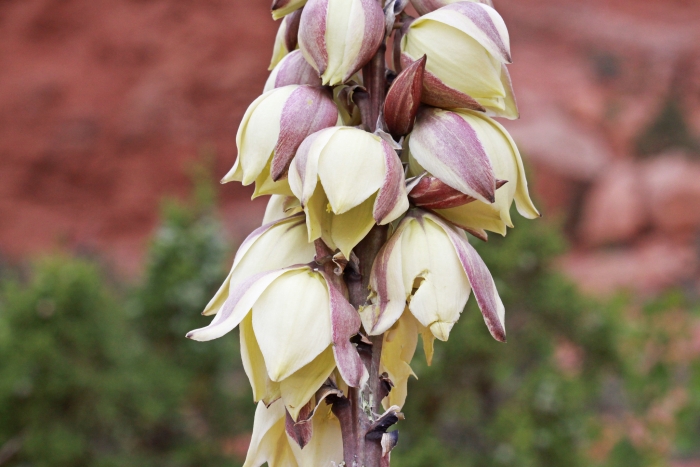Narrowleaf Yucca
(Yucca angustissima)
Narrowleaf Yucca (Yucca angustissima)
/
/

Andrey Zharkikh
CC BY 2.0
Image By:
Andrey Zharkikh
Recorded By:
Copyright:
CC BY 2.0
Copyright Notice:
Photo by: Andrey Zharkikh | License Type: CC BY 2.0 | License URL: https://creativecommons.org/licenses/by-sa/2.0/ | Uploader: AndreyZharkikh | Publisher: Flickr |



















































Estimated Native Range
Summary
Yucca angustissima, commonly known as Narrowleaf Yucca, is an evergreen perennial that can be classified as a shrub, herb, subshrub, or succulent. It is native to the arid regions of the Southwestern United States, particularly found in desert scrub, grasslands, and open woodlands. This species is adapted to thrive in harsh, dry environments and is often seen in rocky or sandy soils. Narrowleaf Yucca typically forms colonies of basal rosettes that can reach up to 3 meters (10 feet) in diameter. The leaves are long and slender, up to 150 cm in length but rarely exceeding 2 cm in width. During the flowering season, which occurs from late spring to early summer, it produces white to cream or greenish-white flowers. These flowers are pendant and borne in racemes on stalks that can grow up to 2 meters (7 feet) tall, adding a striking vertical element to the plant’s form. The fruit is a dry capsule containing black seeds.
Narrowleaf Yucca is valued for its drought tolerance and architectural form, making it a suitable choice for xeriscaping, rock gardens, and as a focal point in water-wise landscapes. It is also used for erosion control due to its ability to form dense colonies. In cultivation, it requires full sun exposure and well-drained soils. It is highly adaptable to various soil types, provided they have fast drainage. This plant is low-maintenance, requiring minimal water once established, and it does not have significant problems with diseases or pests. However, its sharp leaves can be a hazard in pedestrian areas, and it should be sited with care.CC BY-SA 4.0
Narrowleaf Yucca is valued for its drought tolerance and architectural form, making it a suitable choice for xeriscaping, rock gardens, and as a focal point in water-wise landscapes. It is also used for erosion control due to its ability to form dense colonies. In cultivation, it requires full sun exposure and well-drained soils. It is highly adaptable to various soil types, provided they have fast drainage. This plant is low-maintenance, requiring minimal water once established, and it does not have significant problems with diseases or pests. However, its sharp leaves can be a hazard in pedestrian areas, and it should be sited with care.CC BY-SA 4.0
Plant Description
- Plant Type: Shrub, Herb, Subshrub, Succulent
- Height: 1-5 feet
- Width: 1.5-3 feet
- Growth Rate: Slow
- Flower Color: White, Cream
- Flowering Season: Summer, Fall
- Leaf Retention: Evergreen
Growth Requirements
- Sun: Full Sun
- Water: Low, Very Low
- Drainage: Fast
Common Uses
Bee Garden, Bird Garden, Butterfly Garden, Deer Resistant, Drought Tolerant, Edible*Disclaimer: Easyscape's listed plant edibility is for informational use. Always verify the safety and proper identification of any plant before consumption., Erosion Control, Fire Resistant, Fragrant, Hummingbird Garden, Low Maintenance, Rabbit Resistant, Showy Flowers
Natural Habitat
Native to desert scrub, grasslands, and open woodlands in the Southwestern USA
Other Names
Common Names:
Scientific Names: , Yucca angustissima,
GBIF Accepted Name: Yucca angustissima Engelm. ex Trel.